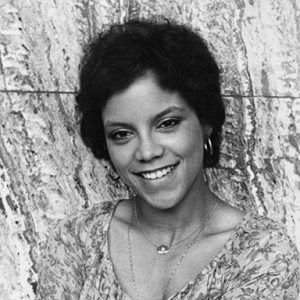calsfoundation@cals.org
Deborah Myers Mathis (1953–)
Deborah Mathis is an acclaimed journalist and author who has been a reporter and columnist for newspapers and a television reporter and anchor. She was inducted into the Arkansas Black Hall of Fame in 2003.
Deborah Myers was born in Little Rock (Pulaski County) on August 24, 1953. Her father, Lloyd H. Myers, was a businessman and Baptist minister, while her mother, Rachel A. Helms Myers, was an educator. She has several brothers and sisters. Myers attended Gibbs Elementary, Rightsell Elementary, and Westside Junior High, graduating from Little Rock Central High in 1971. She got her start in journalism at the Central school newspaper as the first female and first African-American editor.
Rather than leave home to go to college, she stayed in Little Rock and married Bill Mathis, with whom she had two daughters and a son; the couple later divorced. She started as a clerk typist at the Arkansas Democrat newspaper in 1971 and moved on to reporting a few months later. When she was twenty years old, she was invited to audition for a job at WTTG-TV in Washington DC. She worked there until she moved back to Little Rock to become a reporter and morning anchor for KARK-TV, then for Channel 7. She also worked for a time for the Winthrop Rockefeller Foundation.
After working for Channel 7 for six years, she resigned, agreeing to let the Arkansas Democrat publish her letter of resignation. She explained in a 2007 interview, “Paul Johnson, who wrote about television for the Arkansas Gazette, called me and said, ‘I hear that…you turned in your resignation.’ ‘Yes.’ ‘Well,…the general manager of Channel 7 tells me that you wrote one of the best resignation letters that he’s ever seen. Do you mind if I publish some of it in my column?’”
Mathis began writing for the op-ed page of the Arkansas Gazette and soon was on staff at the newspaper. In 1991, she went to the Middle East to report on the Gulf War. She was also one of the first to report on “the newspaper war” between the Gazette and the Democrat and was working for the Gazette when it closed in October 1991 to become part of the Arkansas Democrat-Gazette.
She became the staff opinion columnist for the Clarion-Ledger in Jackson, Mississippi, writing three columns a week on the op-ed page. Her column was nationally syndicated by Tribune Media Services in more than eighty newspapers.
The Clarion-Ledger’s parent company, Gannett, wanted her to cover the Washington DC beat while Bill Clinton was running for president, so she moved to Washington to become White House correspondent for Gannett in January 1993. While also writing her syndicated column, she covered the White House news until the end of 2000.
Mathis then began a one-year fellowship at the Shorenstein Center on Media, Politics and Public Policy at Harvard University, during which she did a case study of the racial makeup of the media discussions of the disputed 2000 presidential election. She ran afoul of the Harvard administration, however, when she personally invited longtime associate Bill Clinton to speak at a conference to discuss the results of her study. (There have been rumors that she was romantically involved with Clinton when he was governor, but she denies this.)
She became a full-time consultant for the public-interest group the Advancement Project, which conducts civil-rights litigation. In that role, she traveled with a client to Africa to report on the AIDS epidemic there. She spoke in Turkey for a global business conference and then moved to Turkey for a year after her son left for college.
Mathis moved back to the Washington DC area, teaching for a satellite graduate program of Northwestern University. She then became director of communications for the Public Justice Foundation, a public-interest law firm.
Mathis has published three books. She has said that she considers her first book, Yet a Stranger: Why Black Americans Still Don’t Feel at Home (2002), to be a twenty-first-century follow-up to W. E. B. DuBois’s 1903 classic, The Souls of Black Folk. She also wrote What God Can Do: How Faith Changes Lives for the Better (2005) and Sole Sisters: The Joys and Pains of Single Black Women (2005), for which she interviewed 125 black women. In a 2013 interview, she said she was working on a nonfiction book about a murder case in Florida.
For additional information:
“Deborah Mathis.” http://authors.simonandschuster.com/Deborah-Mathis/20109825 (accessed September 13, 2021).
Mathis, Deborah. Yet a Stranger: Why Black Americans Still Don’t Feel at Home. New York: Grand Central Publishing, 2002.
McConnell, Jerry. Interview with Deborah Mathis, June 16, 2007. Arkansas Democrat Project. David and Barbara Pryor Center for Arkansas Oral and Visual History. University of Arkansas Libraries, Fayetteville, Arkansas. Online at http://pryorcenter.uark.edu/projects/Arkansas%20Democrat/MATHIS-Deborah/transcripts/MathisDeborahDemocrat.pdf (accessed September 13, 2021).
Ali Welky
Encyclopedia of Arkansas History & Culture
 Divergent Prosperity and the Arc of Reform, 1968–2022
Divergent Prosperity and the Arc of Reform, 1968–2022 Deborah Mathis
Deborah Mathis 



Comments
No comments on this entry yet.